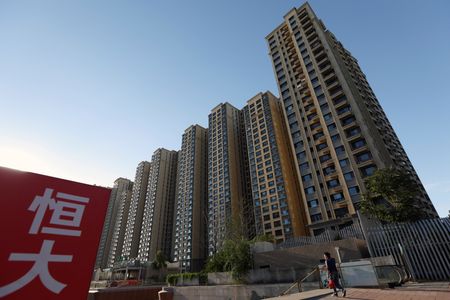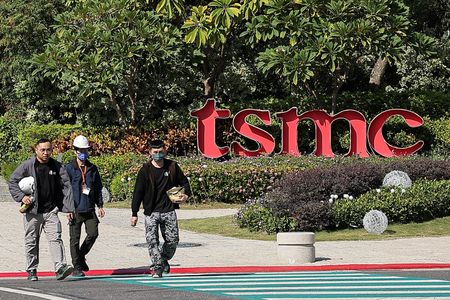BANGKOK (Reuters) -Thailand’s central bank left its key interest rate unchanged for a fifth straight meeting on Wednesday, as widely expected, despite a sluggish economy and fiscal policy uncertainty after a court dismissed the prime minister.The Bank of Thailand’s (BOT) monetary policy committee voted 6-1 to hold the one-day repurchase rate at 2.50%, the highest in more than a decade.
All but three of 27 economists in a Reuters poll had expected the BOT to keep the rate unchanged this week. Three economists had predicted a quarter-point cut.
“The majority of the committee deems that the current policy interest rate is consistent with the economy converging to its potential, as well as conducive to safeguarding macro-financial stability,” the central bank said in a statement.
The median forecast in the Reuters poll was that a rate cut is not expected until the second quarter of 2025.
The one dissenting member of the committee supported a 25 bps cut to reflect a lower growth potential from structural challenges and to partly alleviate a debt-servicing burden for borrowers, the BOT said.
The BOT raised its key rate by 200 basis points to 2.50% over eight meetings between August 2022 and September 2023, and has held it steady since then.
Several central banks have started easing policy, including in the Philippines and New Zealand last week. Sweden delivered its second cut on Tuesday, while the Bank of England and Switzerland also lowered rates recently. The next BOT policy review is on Oct. 16.
The BOT said inflation was likely to be lower than forecast, with agricultural prices expected to stay subdued due to better weather conditions helping production.
Inflation, which was 0.83% in July, would gradually return to its target range of 1% to 3% by the end of the year, it said, noting there was a need to monitor possible extension of government price subsidies.
Southeast Asia’s second-largest economy grew 2.3% in the April-June quarter from a year earlier, accelerating from the 1.6% growth in the prior quarter, but analysts said fiscal policy uncertainty clouded the outlook.
The BOT said the economy was expected to grow as anticipated, led by tourism and domestic demand, despite a slowdown in private consumption, while manufacturing was recovering only gradually, as some export sectors were still suffering from declining competitiveness.
The economy would grow close to 3% in the third quarter year-on-year and close to 4% in the last quarter, the BOT said at a press conference.
(Reporting by Orathai Sriring, Kitiphong Thaichareon and Thanadech Staporncharnchai; Editing by John Mair, Martin Petty and Shri Navaratnam)










